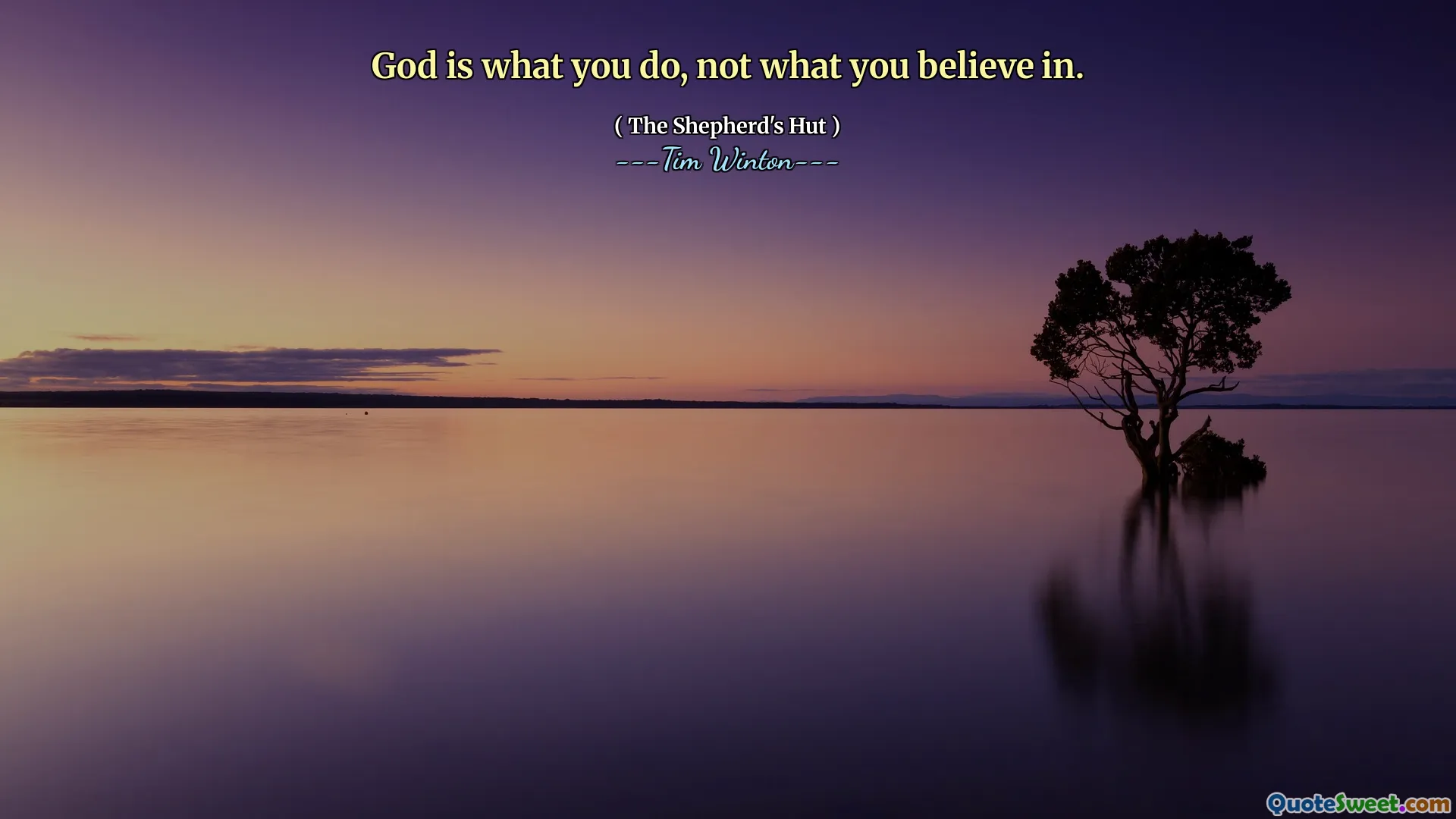
God is what you do, not what you believe in.
This quote challenges conventional perceptions of divinity, emphasizing the importance of actions over mere beliefs. Often, society tends to equate faith or religious affiliation with moral or virtuous behavior. However, the essence of spirituality or what it means to be 'godly' transcends doctrine and resides in genuine deeds. When we consider the divine in terms of actions, it prompts us to reflect on the true measure of our character—not just what we profess to believe, but how we live out those beliefs through our interactions, decisions, and contributions to the world. The idea suggests that belief without action is superficial; true faith or spirituality manifests in tangible ways—kindness, integrity, support, and empathy. This perspective encourages personal accountability and invites individuals to embody their values actively rather than solely holding beliefs internally. It aligns with the philosophy that integrity is rooted in consistent behavior and that the highest spiritual practice is to serve and uplift others. The quote also implies that each person's true 'god'—or moral compass—is demonstrated through their actions. It calls for a re-evaluation of priorities: instead of merely believing in goodness, we are challenged to enact goodness continuously. In the broader scope, this outlook fosters a more authentic, impactful approach to ethical living, emphasizing that true divinity is accessible through human effort and compassion. Thus, it invites us to see our daily choices as opportunities to manifest the divine within us and around us, transforming abstract beliefs into concrete acts of kindness and justice.



